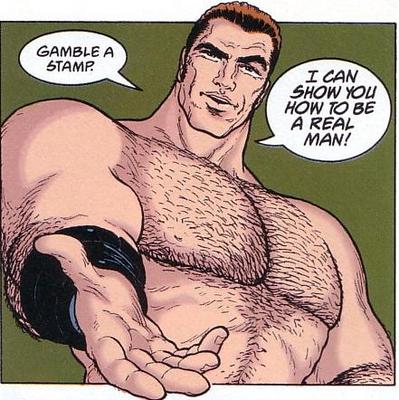
Anyway, the superheroes. I agree with my pal and fellow mad writer Andrew M. Dean's statement: "Superheroes are the greatest literary invention of the 20th century." I've found myself repeating that a lot, mainly because it is utterly true and should be shouted from the rooftops. Other writers might find it a bit silly that quite a few people think of superheroes as a modern mythology, but not I. No, I think the idea of the superhero, and quite a few executions of that idea, are primal representations of humanity’s spirit, dreams, dignity, and all that good stuff. The superheroes were born out of the cultural zeitgeists of their times, and plucked from the archetypal Jungian soup of our collective unconscious (if you believe in that sort of thing). I think that the comic book is a wonderful medium, the ultimate collaborative art form and a powerful storytelling method that’s gotten a bit lost in the corporate shuffle. Still, if there’s one thing comics do best (well, one of many things), it’s superheroes.
No other comic teaches this lesson better than Flex Mentallo, a four issue mini-series from 1996 by Grant Morrison and Frank Quitely (the same two that brought us JLA: Earth 2, New X-Men, We3, and soon, All Star Superman). It is the ultimate love letter to superheroes and the comics art form. It was also the subject of a lawsuit against DC/Vertigo by the Charles Atlas people, because, well, the character of Flex Mentallo (who first appeared in an issue of Morrison’s Doom Patrol) is, in its basest form, a parody of the old Charles Atlas bodybuilding ads. Anyway, DC won the case but has shied away from reprinting Flex in a trade paperback, so the comic is dreadfully rare and obscure. It sells for lots of money on eBay relatively regularly though, so buy it if you’ve got the bucks. If you don’t, you can always download it (“But remember kids, downloading comics is wrong!”).
Before I begin, I’d like to mention that you can find annotations for Flex by clicking here, but they probably won’t do you much good if you don’t have the book itself.
Now, what’s the comic about, you ask? Well, that’s... complicated. It would take me pages and pages to explain and analyze this comic fully, and it still won’t be worth it if you don’t have access to the book, which most people, sadly, do not. The book is an experience. It broke my brain and changed my view of the world and my writing. So, yes, it’s profound, and profoundly important to me personally. In this limited blog space, hopefully I’ll be able to cover the basics, talk it up a bit, throw some panels at you (remember: copyright, Morrison, Quitely, DC/Vertigo, etc.), and get you interested in seeking it out, that is, if it ever comes out in TPB form.
Flex Mentallo covers quite a few myriad plot threads which are all connected and all come together by the end, literally and thematically and all that. Part of it is about Flex Mentallo 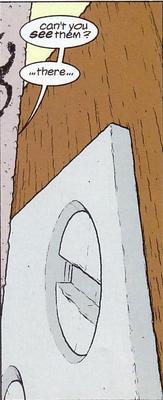
It’s a post-modern, fairly self-aware comic. It tells an adventure of the character Flex Mentallo while flashing back to his past, fictions within fictions. Meanwhile, Wally Sage’s life is flashing before his eyes, and we visit his past, his memories of the past, his dreams, and his hallucinatory acid trips. The reader is never quite sure what timeline or reality the narrative is taking place in, but that doesn’t quite matter to the plot. I’ll let the introduction from the annotations site explain further:
“Grant Morrison and Frank Quitely's Flex Mentallo, on the other hand, does not place its heroes within a novelistic or realistic world--a linear world--but rather within a fragmentary matrix of parallel universes and alternate realities, within a wild and meta-aware history of comics itself. Flex Mentallo is a comic about comics; it revels in the traditions of superhero comic books--narrative, semiotic, and corporate alike--even as it critiques them. It is an absolutely brilliant work, but it is, in many ways, an ‘inside joke.’”
To understand the book, one really has to have experience with superhero comics history. Each issue seems to be structured akin to a different comics era. There is the Silver Age issue, the Grim-and-Gritty issue, etc. The comic is at times a pastiche of superhero comics, but it’s also a loving tribute to them, filled with homages and references.
Yet, as we read, we never know what is “real,” what is a “fiction.” In truth, it is all of the above all at once. In the final issue, and I’m going to spoil a bit of the magic for you, if you don’t mind, Flex Mentallo battles the Man-in-the-Moon, who turns out to be the disillusioned teenage Wally Sage. At the same time, the adult Wally Sage is traversing his own psyche, through parallel worlds of being. He decides, in the end, that he never took any drugs, that they were, in fact, M&Ms, and so saves himself just as Flex Mentallo is *also* saving him. We learn that, some time ago, in another reality, the superheroes, in order to save their own universe, became fictional in ours.
“Welcome,” says the comic. “You have been inhabiting the first ultra-post-futurist comic: characters are allowed full synchrointeraction with readers on this level.” It is after this that Wally Sage discovers and says the magic word that brought the universe into being, and the world is transformed; the superheroes become real once more, seen in a breathtaking final page as they soar into the sky. It all hinges on the power of belief; belief in life and love and comics and superheroes and the world. It gives us hope for the world and the future, and a renewed appreciation for the concept of the superhero.
I’m not sure all of the above made sense. What I do know is that Flex Mentallo is a helluva ride, and it made me believe in superheroes. It’ll do the same for you. And that, my friends, is why it is better than Watchmen. Flex gets a 10/10, ‘natch.
In future installments, I may revisit a few more Flex bits, and also go over some more of my favorite comics. I’d like to keep this dealy regularly updated, but I’m also making stuff up as I go along.
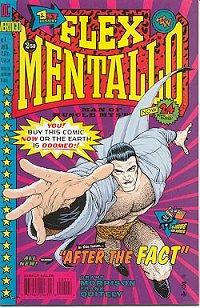
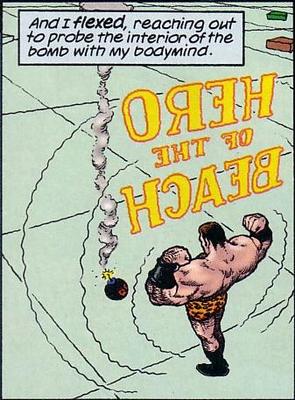
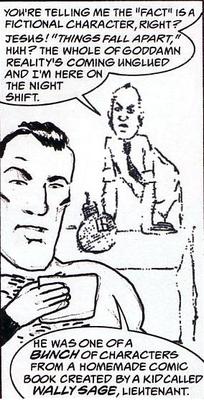
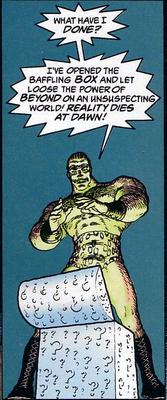

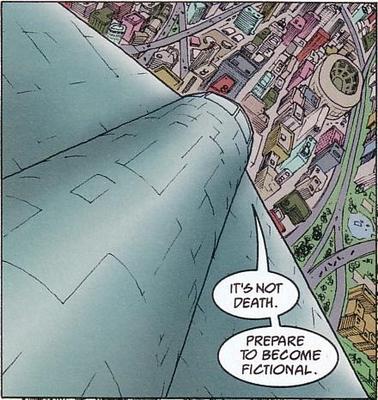
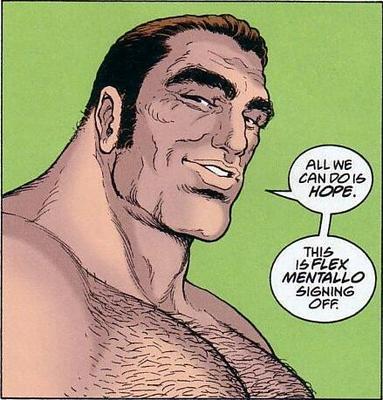
6 comments:
Well put, Bill.
Well put.
Thanks, mate.
I was lucky enough to buy these when they came out. Little did I know they would become such prized possessions. This is a series that defies description, but you did a nice job. I actually pity people who don't have these, and curse DC for not reprinting this. Stupid DC.
i am a real super hero or at least i think i am i am not playing a prank this is no joke i need some encouragment because the city i live does not know how to behave i wish i could be publicly known but i am not ready for that yet. plese enlightn me (spetsnaz213@yahoo.com)
Just wrote a whole bunch on superheroes myself, and while googling up Flex found your blog.
Agreed. Flex Mentallo is the best comic book out there. The best.
Hi Blogger, I found your blog quite informative.
I just came across your blog and wanted to
drop you a note telling you how impressed I was with it.
I give you my best wishes for your future endeavors.
If you have a moment, please visit my adare golf accommodation site.
Have a great week!
Post a Comment